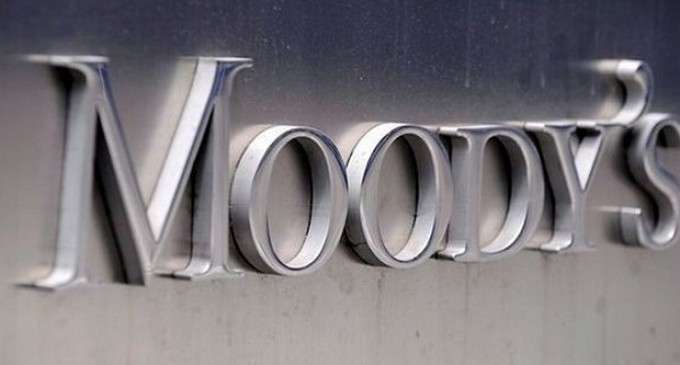 PAKISTAN WELCOMES MOODY’S BOND UPGRADE TO STABLE
PAKISTAN WELCOMES MOODY’S BOND UPGRADE TO STABLE
ISLAMABAD July 14 (Reuters) – Pakistan sovereign dollar bonds were trading up after Moody’s Investors Service upgraded the country’s foreign currency government bond rating from negative to stable on Monday, a move that the finance minister hailed as the fruits of reform.
Those due in 2019 695847AL7= were half a point higher at 103.5-104.5 cents on the dollar for a yield of around 6.3 percent. The bonds due in 2024 695847AK9= were also half a point higher at 104.75-105.75 for a yield of around 7.5 percent.
Moody’s said the government’s issuer rating and senior unsecured rating remained at Caa1.
“Moody’s decision to revise the outlook on Pakistan’s foreign currency rating is primarily based on a stabilization in the country’s external liquidity position, supported by the government’s strong commitment to reforms under an ongoing programme with the International Monetary Fund,” the firm said.
Pakistan’s foreign exchange reserves increased to $9.0 billion by the end of June 2014 from a low of $2.9 billion in early February 2014.
The country benefited from a new IMF programme, bilateral assistance and government deals that included the auctioning of 3G and 4G licences. A Eurobond sale in April also raised $2 billion.
Finance Minister Ishaq Dar said the upgrade was a vote of faith in the government’s reform programme in a statement issued by the ministry.
“As a result of hard work, commitment and financial discipline introduced by the government that the world has changed its outlook towards Pakistan,” he said.
The IMF programme will disburse $6.7 billion over three years if the government institutes reforms. Those include privatising some loss-making state industries, closing some tax loopholes and reforming the country’s troubled energy sector.
Almost all wealthy Pakistanis, including most legislators, pay extremely small amounts of tax. Recent initiatives to increase tax collection have disproportionately hit poor Pakistanis. Daily blackouts are crippling the economy, leading to widespread unemployment and unrest.
Reform will be difficult, Moody’s acknowledged, but “a stalling of the ongoing IMF program, a deterioration in the external payments position or a worsening political environment would be viewed as credit negative.”
Eleven out of 12 IMF programs since 1998 have been scrapped or abandoned because Pakistan failed to institute reforms.










Add comment